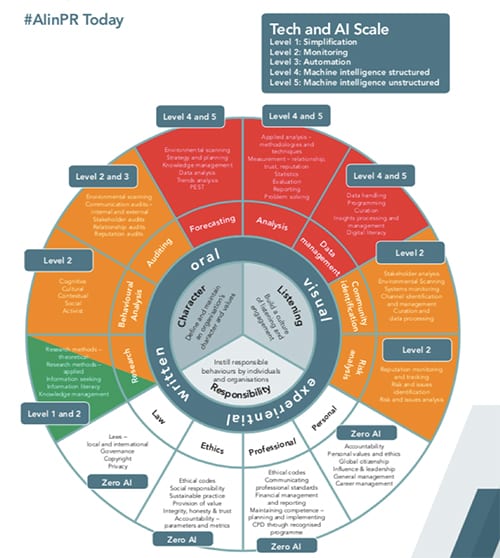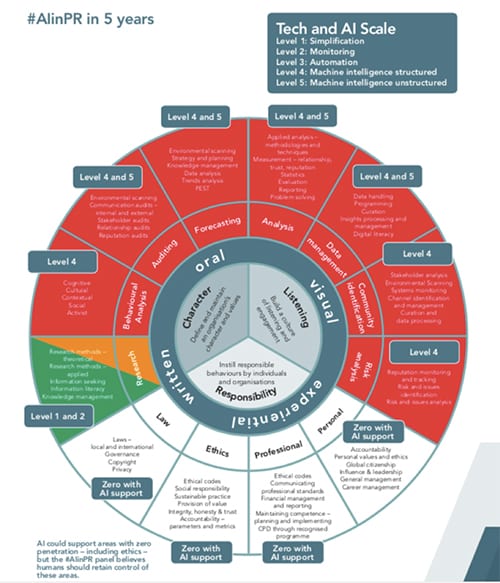AI… it’s a Steven Spielberg film starring Jude Law right? It’s a distant concept that isn’t impacting us yet. Think again. Machine learning and AI is growing and already impacts everyone’s lives every day. As I learned in a compelling morning of presentations around AI in PR at the very impressive PROTO in Gateshead, hosted by the CIPR (Chartered Institute of Public Relations).
The thing is, AI (that’s artificial intelligence by the way) is already in our lives, from social media algorithms, to customer service chatbots on websites. I can guarantee we all encounter AI every day in some form or another.
AI is defined in the dictionary as:
A branch of computer science dealing with the simulation of intelligent behaviour in computers.
The capability of a machine to imitate intelligent human behaviour.
That’s quite a broad definition. If we took that at face value, a calculator is AI… so we need to add an extra layer to this, and that’s where machine learning comes in.
To quote AI startup Wordnerds: If it’s not making decisions, it’s not AI.
What struck me from the presentations I saw, is there are two aspects to perceptions of AI: Fear and opportunity.
Fear
Kerry Sheehan from the CIPR’s #AIinPR panel talked us through the impact that AI is having not only in our industry but across a lot of enterprise. On face value, AI is replacing a lot of work done by humans; doing it quicker and better, hence a fear that machines are taking our jobs; the robots are taking over!
Well, this is partly true. What machines are doing is taking away the entry-level work for graduates and young people to get into an industry. This is around the traditional skillsets such as risk management, data management, and listening; the day-to-day bits and bobs that get many of us starting out do to get the experience needed to take the next step on the career ladder. Without this work, what is the new starting off point for those coming into the industry at the beginning of their careers?
Opportunity
There are still some essential human skills that the robots will never be able to gain. Think strategy, creativity, ethics, and people management.
These two diagrams are the result of a study looking at the skillset in PR now and in 5 years, and how AI will impact on them.
Source: CIPR


As scary as new technology is, there is some real opportunity for all of us to use AI to improve our productivity and service, whatever line of business we operate in.
We at DTW have found opportunity in AI through some of the tools we use. We’ve been trialling a tool that automatically transcribes our videos so we don’t have to manually make subtitles (thus increasing accessibility of our clients’ messages). We use social media smart scheduling tools that analyse when the most engaging time of day is for our clients’ Twitter and Facebook accounts so we can post when they’ll get the most exposure.
So, these are some of the lessons we’re learning in PR around AI that can be applied to other industries:
- Don’t be scared. Take advantage of the technologies to improve your productivity and professional offering.
- Make sure you have an understanding of the technology. The CIPR is going to offer coding classes so PR professionals can create and better understand how AI programmes work.
- Don’t use tools for the sake of using them. Make sure they offer the right solution for you.
- We all have an ethical responsibility to ensure AI is influencing decisions in the right way (i.e. not biased or prejudiced or inappropriate). For example, Amazon became aware that children were learning how to talk through voice commands on their Echo devices, which meant they were learning a blunt way of talking: “Alexa, do this… do that”. So, they decided to adapt the AI technology to only respond to commands from children that included a ‘please’ or a ‘thank you’.
So, the robots? Not so scary after all!
